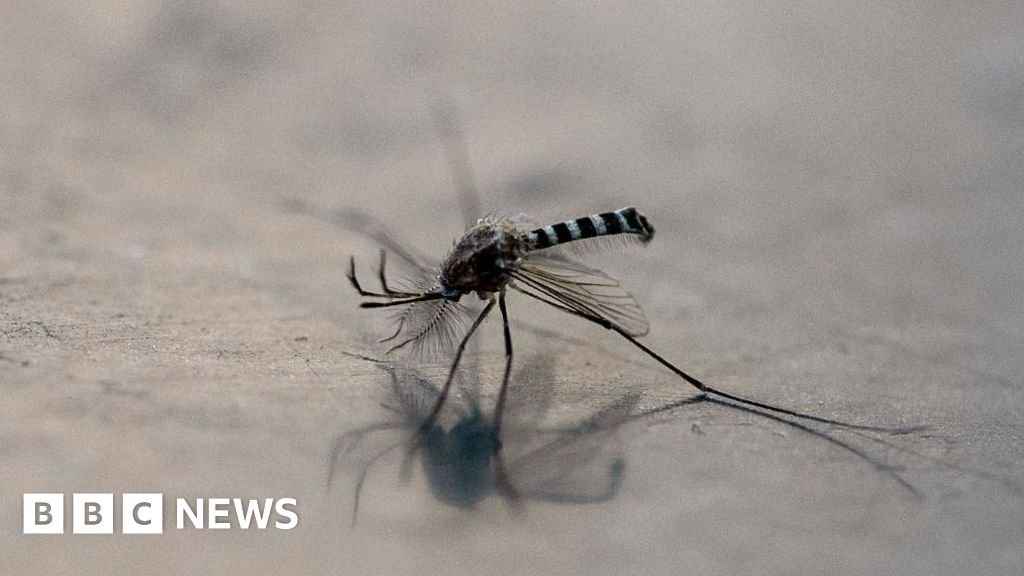Philippines: Manila town offers bounty for mosquitoes as dengue rises

Authorities in one of the Philippines’ most densely-populated urban centres are offering a cash reward for mosquitoes in an attempt to stop the spread of dengue.
Carlito Cernal, village chief of Barangay Addition Hills in central Manila, announced the bounty of one peso (less than two US cents) for every five mosquitoes.
While news of the bounty has provoked scorn on social media, Mr Cernal has defended it as necessary for the community’s health.
The move follows a recent spike in cases of dengue, which is spread by mosquitoes, in the Philippines.
The programme, which will run for at least a month, was started after two students in Mr Cernal’s neighbourhood died from the disease.
The bounty applies to all mosquitoes – dead or alive – and their larvae, Mr Cernal added. Live mosquitoes will be exterminated using ultraviolet light.
A total of 21 people have already claimed their reward, bringing in a total of 700 mosquitoes and larvae so far, he told the BBC.
The bounty drew swift ridicule after it was announced late on Tuesday.
“Mosquito farming is coming,” one social media comment read. “Will a mosquito get rejected if it has only one wing?” read another.
The Philippines’ Department of Health (DOH) told the BBC that it “appreciates the good intentions of local government executives to fight dengue”.
It declined further comment, however, when asked if catching mosquitoes in exchange for cash is an effective way of stopping dengue.
“We urge all concerned to please consult and coordinate with their local health officers or the DOH regional office in their area for evidence-based practices that are known to work,” it said.
Mr Cernal said he was aware that the bounty had been bashed on social media, but added: “This is one of the biggest and most dense areas. We have to do something to help the local government.”
He pointed out that local health authorities recorded 44 cases of dengue in the community during the most recent surge of infections.
Barangay Addition Hills is home to nearly 70,000 people, crammed into a 162-hectare patch at the heart of the capital, Metro Manila.
Mr Cernal said the bounty was meant to supplement existing measures such as cleaning the streets and preventing the build-up of water where dengue-carrying mosquitoes lay their eggs.
Dengue is endemic in tropical countries, and outbreaks often occur in urban areas with poor sanitation which allows virus-carrying mosquitoes to multiply.
In severe cases, dengue causes internal bleeding which can lead to death. Its symptoms include headaches, nausea, joint and muscle pain.
Philippine authorities have recently flagged a rise in dengue cases nationwide due to seasonal rains. The DOH said it recorded 28,234 cases on 1 February, a 40% jump from the previous year.
The department has advised the public to maintain the cleanliness of their surroundings, destroy potential mosquito breeding sites such as tyres, wear long-sleeved shirts and trousers and apply mosquito repellent.
Aside from dengue, the DOH said the rains have also fuelled a spike in influenza-like diseases and cases of leptospirosis, a rat-borne disease that people get when wading in flood waters.
World News || Latest News || U.S. News
Source link



